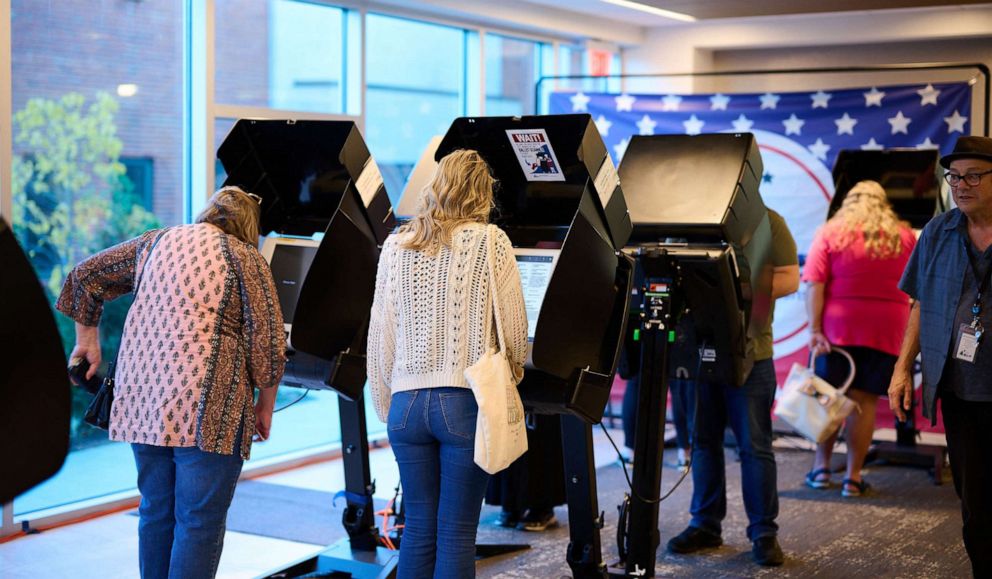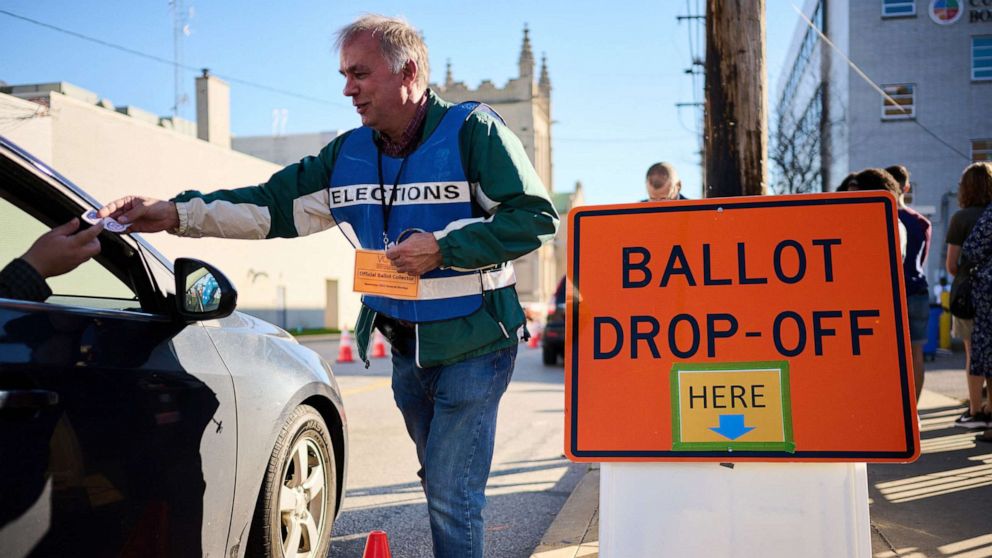Polling places across the country will be packed with crowds of voters on Election Day, November 8. It can be easy to get confused or lost in the frenzy.
Here’s what voters need to know to help get them through the day smoothly.
how to vote
It is recommended that voters consult local election websites or the resources of the National Conference of State Legislatures to find out what the Election Day rules are for their state and region.
The FBI warns of potential scams and bad faith actors who may target voters with inaccurate election dates, false qualifications and voting methods, and more.
Election Day is always the first Tuesday after November 1, this year’s date is November 8.
There is no option for the general public to vote online or by text message, the FBI confirms on its website.
To vote on Election Day, you must go to your designated polling place. You can find where your polling place is by entering your home address into the poll locators on websites including Vote.org, Google.com, or your local elections website.
If you need an accommodation due to a disability or need help voting using a minority language at your polling place, your polling place may offer special assistance, according to the US Election Assistance Commission. The agency recommends contacting your local election office for more details.

Voters cast their ballots at the Lake County Board of Elections headquarters in Painesville, Ohio, on November 6, during early voting for the 2022 midterm elections.
Dustin Franz/AFP via Getty Images
“Contact your local elections office for advice, materials in a specific language, information on voting equipment, and details on access to the polling place, including parking,” the agency states.
Local voter guides can help voters stay informed about who is on the ballot, what candidates stand for, and what ballot measures will be on the ballot at election time. Your local voter guide can probably be found on your local election website or by searching for VOTE411’s custom ballot guide. Sample ballots are also helpful in finding out who and what is on the ballot.
USAGov, a federal service that maintains government information, recommends bringing notes, a voter’s guide, or a sample ballot to the voting booth; this is permitted, so voters can be confident in their candidate choices and ballot initiative options.
However, some polling places may restrict cell phone use, so USAGov recommends bringing paper copies rather than using notes on your phone.
Many states will not require you to bring your voter registration card to the polls, however most do expect some form of identification to vote in person.
Laws may have changed in recent years, so voters are encouraged to check local election rules regarding restrictions and identification.
Don’t forget your rights
The American Civil Liberties Union (ACLU) advises voters that if the polls close while you are still in line, stay in line.
They say many Election Day mistakes need to be fixed quickly: If a mistake is made on your ballot, you can request a new one, and if the voting machines are down at your location, you can request a paper ballot.
If a poll worker says a voter’s name is not on the list of registered voters, the ACLU recommends that voters ask the poll worker to double check the spelling of their name. The organization also recommends double checking that the voter is at the correct polling place.

An official ballot collector for the Cuyahoga County Board of Elections gives a voter their “I Voted” sticker after dropping their mail-in ballots into a collection box in Cleveland, on November 6, 2022, ahead of the election half-period.
Dustin Franz/AFP via Getty Images
If a poll worker still can’t find your name or if you can’t travel to the correct polling place, request a provisional ballot. Voters are entitled to a provisional ballot even if they are not on the poll book, the ACLU says.
Elections officials will investigate whether you are qualified to vote and whether you are registered; if it is, your provisional ballot will be counted.
If you are turned down or denied a provisional ballot, the ACLU recommends reporting the experience to local election officials or calling the voter protection hotline.
The hotline is run by the Lawyers Committee for Civil Rights Under Law in case voters have a problem on Election Day.
The hotline is available in several different languages: English, 1-866-687-8683; Spanish: 1-888-839-8682; Arabic: 1-844-925-5287; For Bengali, Cantonese, Hindi, Urdu, Korean, Mandarin, Tagalog, or Vietnamese: 1-888-274-8683.
What Voter Intimidation Looks Like
“The goal of voter intimidation, on the other hand, is to deter or influence electoral activity through threats to deprive voters of something they already have, such as jobs, government benefits, or, in extreme cases, their personal security. ”, states the United States Department of Justice in a 2017 report.
Voter intimidation is a violation of civil rights and is illegal.
“Voter intimidation can vary, and federal and state protections are broad for that reason, seeking to protect voters against a number of different ways that voter intimidation could arise.” said Katie Friel, a member of the Brennan Center’s Democracy program. “For almost all voters, it will be a quiet and uneventful Election Day.”
A Georgetown Law fact sheet states that voter intimidation can be: violent behavior at or near a polling place, verbal or physical threats of violence, confrontations with voters while wearing official-looking uniforms, harassment, dissemination of information false about voting requirements or methods, and more.
If you see or experience voter intimidation, the ACLU urges voters to notify local election officials, document what you experienced, and call the US Department of Justice Voting Rights Hotline at 800-253-3931 or to the election protection hotline.
The FBI asks that voters “help defend the right to vote by reporting any suspected cases of voter suppression” to a local FBI office or at tips.fbi.gov.
If voters fear imminent violence, the ACLU recommends calling 9-1-1.
Source: news.google.com